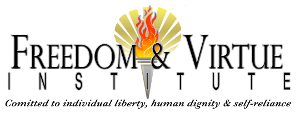In a recent speech at a Federalist Society conference, Supreme Court Justice Samuel Alito asserted that “the pandemic has resulted in previously unimaginable restrictions on individual liberty.” He hedged this claim about with caveats, such as, “I am not diminishing the severity of the virus’s threat to public health”; and, “I’m not saying anything about the legality of COVID restrictions”; and, “Nor am I saying anything about whether any of these restrictions represent good public policy.” He was simply drawing attention to “disturbing trends that were already present before the virus struck,” including “the dominance of lawmaking by executive fiat rather than by legislation,” and “in certain quarters,” religious liberty’s “fast becoming a disfavored right.”
In other words, without concluding that any particular pandemic-related measure was or was not necessary or justified, Alito was sounding an alarm: We should be concerned about how easily government officials and agencies can suppress liberties that have long been considered fundamental to American life. Of particular concern is religious liberty, which had already been attenuated by developments such as the Court’s own Obergefell decision on same-sex marriage.
For this, Slate called him a “bitter partisan,” an NBC News headline announced that he had “openly joined the culture wars,” and CNN described him as “ireful” and “infuriated.” This “ireful” response from the organs of the American Left illustrates a trend that has been in evidence for some time. An ideological divide has emerged over terms that were once considered a core element of American unity: liberty and freedom.
![]()
 From the Liberty Bell to the slogan “Give me liberty or give me death,” the language and symbolism of liberty have permeated American political culture since its inception. Until recent decades, social movements strove to attach themselves to that tradition, because identification with freedom virtually ensured success. “Free at last! Free at last! Thank God almighty we are free at last!” were the unforgettable final words of Martin Luther King Jr.’s momentous “I Have a Dream Speech.” No one—left, right, or center—wanted to be associated with oppression or infringement of liberty.
From the Liberty Bell to the slogan “Give me liberty or give me death,” the language and symbolism of liberty have permeated American political culture since its inception. Until recent decades, social movements strove to attach themselves to that tradition, because identification with freedom virtually ensured success. “Free at last! Free at last! Thank God almighty we are free at last!” were the unforgettable final words of Martin Luther King Jr.’s momentous “I Have a Dream Speech.” No one—left, right, or center—wanted to be associated with oppression or infringement of liberty.
This is not to say that there were no vigorous debates or conflicts concerning the meaning of liberty and whether or how it applied to various questions. Americans have always been fractured and fractious. But there was at least some semblance of a shared value that could be appealed to by people of every persuasion. Freedom, we all agreed, is a good thing.
That can no longer be assumed. The terminology of liberty can still be found on the left, especially among older institutions (e.g., the American Civil Liberties Union), but there’s little question that talk of freedom has become mostly a mark of the right. Few left-leaning organizations, websites, or publications formed in the twenty-first century would incorporate the words “freedom” or “liberty” in their titles. Instead, “progress,” “justice,” and “equal” are the preferred concepts. On the right, meanwhile, usage of “freedom” and “liberty” abounds. This causes a snowball effect: As the terms liberty and freedom become associated with conservative politics, they become increasingly suspect on the left.
The terminological divide is important because it’s a manifestation of an ideological divide. There is no identity between terminology and reality, of course, but the two aren’t unrelated either. As a vast swath of the American population becomes suspicious of the language of liberty, the tendency increases to become skeptical of the concept itself. It’s not clear, in fact, which direction the cause-and-effect relationship runs, but that there is some correlation seems beyond question. Evidence abounds. Among young people, for example, a group that is disproportionately liberal in politics, there is also lack of enthusiasm for freedom of speech. This is something new. The freedoms enshrined in the First Amendment—speech, press, assembly, religion—used to be sacrosanct to virtually all Americans of all political stripes. Again, that doesn’t mean there weren’t fights over their meaning, only that there was to some extent a shared set of values, reflected in common parlance.
This is dangerous territory. Heritage Foundation scholar Ryan Anderson called attention to the problem three years ago, when he wrote: “A presumption of liberty has been replaced with a presumption of regulation. Citizens used to think that liberty was primary and the government had to justify its coercive regulation. Now people assume that government regulations are the neutral starting point and citizens must justify their liberty.”
That was before COVID. The presumption of the government’s prerogative to override citizens’ freedom has gained strength during the pandemic. Justice Alito is calling attention to a matter that ought to concern all Americans of every political and religious variety. If the concern is not intense and widespread, then it raises a question that cuts to the heart of American society: Do we still value liberty?


